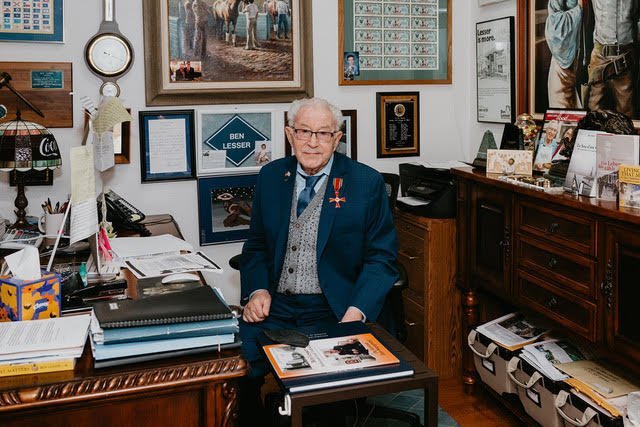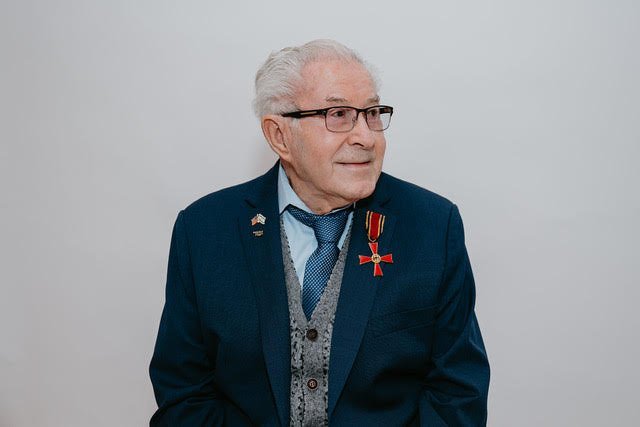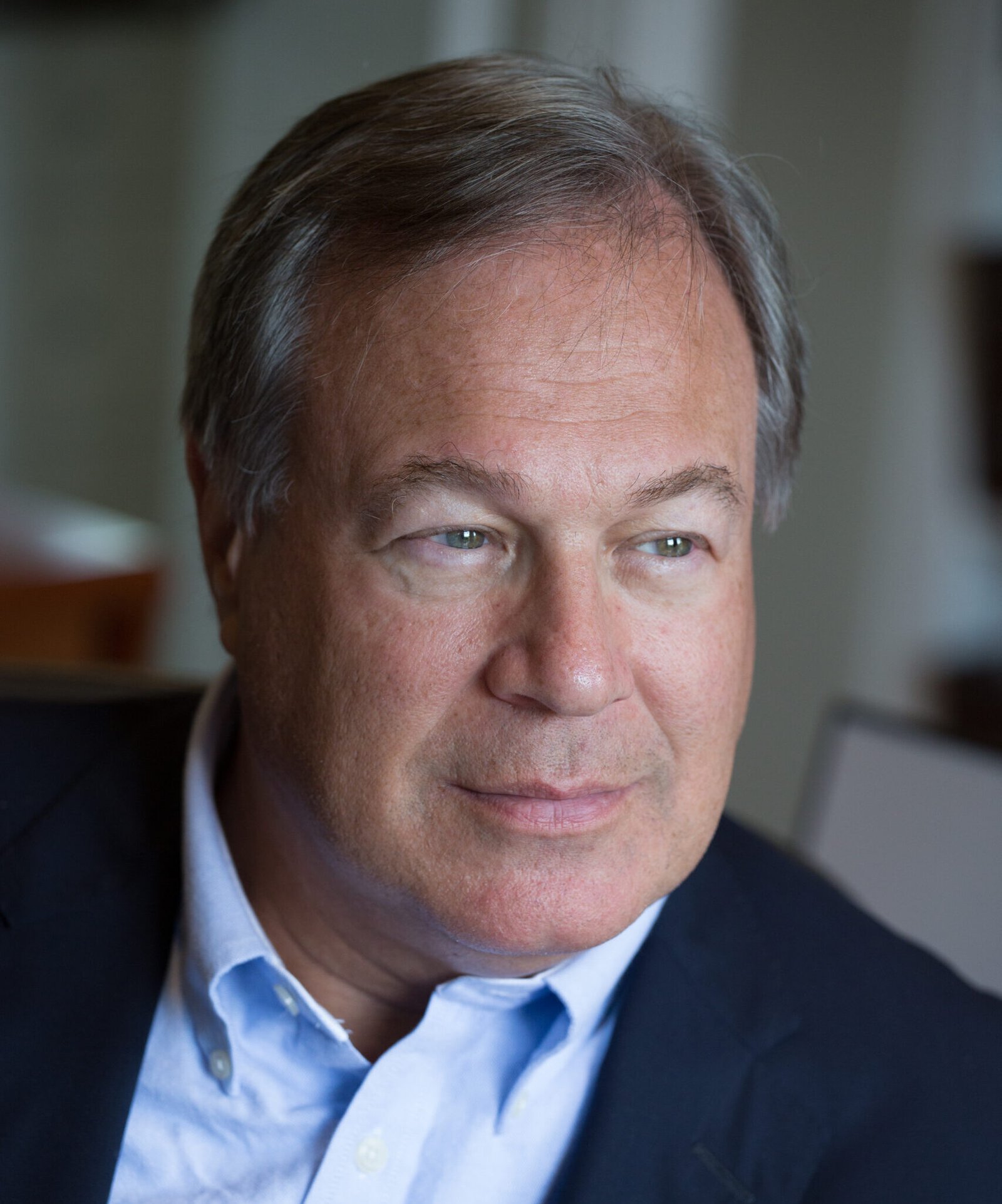I recently went one-on-one with Ben Lesser. Ben is a Holocaust survivor and the founder of the ZACHOR Holocaust Remembrance Foundation.
Adam: Thanks again for taking the time to share your story and advice. First things first, though, in your experience, what are the keys to longevity and remaining vibrant at 95?
Ben: I’m honored to be here, Adam. As you can imagine, sharing real-life testimonies from the Holocaust, like my own, is just as important today…if not more…as it has been for the last 79 years.
Besides daily exercise, I stay involved with the nonprofit organization I founded, ZACHOR Holocaust Remembrance Foundation. Speaking to groups across the world also keeps me vibrant. And now, thanks to being able to connect virtually, I’m on Zoom almost daily speaking to students. I’m not done leaving my legacy behind. I have to complete my mission of ensuring the world doesn’t develop amnesia.
The Nazis robbed me of my own childhood, so I’ve always made it a priority to be “young at heart.” I stay vibrant and young through the time I spend with my children, grandchildren, and great-grandchildren.
Adam: You spent five years as a kid living through an experience most of us are too horrified to truly try to process. What would you like everyone to understand about that period in your life and about what you personally endured during the Holocaust?
Ben: You mention my being a kid, but I never got to be a kid… I never had that privilege. When I was nine years old, my parents told me, “There’s no more playing, there’s no more whining, there’s no more crying…you have to listen and be an adult now.” Overnight, I had to grow up. One day, I was laughing at school, just like my great-grandchildren do, and the next day, there was no school.
It’s nearly impossible for people to truly understand what we endured in these Camps. I learned very quickly about discipline, obedience, the power of choices, and that you had to be the absolute best you can at whatever you do. One example from my time in the camps: the SS gave me a boulder the size of a car and they forced me to break them down into smaller pieces and throw it into a mining car, run it down a hill to the grinding machine that would grind it into gravel and then push the car back up. It was truly backbreaking work, but I did it and I did it well. They never had a chance to reprimand or beat me. I never gave them a reason, and to this day, I try to be the best at whatever I do. It doesn’t matter whether it’s in business, in family, or with ZACHOR… I try to be the best I can.
This wasn’t just about discipline for myself. Even though I was younger, I had to take care of my uncle and my cousin who I entered the camp with and who I tried to keep alive for as long as I could. In fact, although a lengthy story, it’s an important one. My uncle had given everyone in our family, including me, new shoes with diamonds in the heels, should we ever need to use them. We were stripped down with all of our belongings taken from us when we entered Auschwitz. By some miracle, I was able to sneak these shoes in. This is how I was able to care for what was left of my family. I knew that diamonds were hidden in my shoes. I used this to pay for my uncle to work in the kitchen so we could get extra rations so that my uncle who wasn’t strong enough wouldn’t have to work in the rock quarry.
This was my experience in the three Camps, the death march, and the three weeks on the death train that I was forced to suffer through. It was one miracle after another. Imagine being starved and having one piece of bread in your back pocket and rationing it out the size of half an egg every midnight. And this lasted for three weeks. We were so starved, but it was discipline. I was able to survive three weeks with only one piece of bread and no water. Not that we knew it then, but this had to have been my will and the will of the others who survived with me to stay alive. We knew we had to share this trauma once we were liberated. My purpose was and is to tell everyone that this did happen so we never repeat this barbaric history.
Adam: Why do you believe so many people today deny the existence of the Holocaust? What can each of us do to combat this disturbing trend?
Ben: Nothing in history has ever been as documented as the Holocaust. Some of these people learn about World War II but aren’t taught about the Holocaust. Some of this also has to do with parents. What are these deniers learning at home about the Jewish people? I really can’t explain why people still deny the Holocaust and honestly, I believe it’s more important to find a solution to this problem, instead of focusing on the problem itself.
The bigots and haters will always be around and try to blame Jewish people for everything that is bad in the world. We have to make Holocaust education a requirement, like we were able to do in the state of Nevada, along with Black history and indigenous history. I think true education, beginning by teaching kids about the Holocaust is the only way to make people believe and keep them from spreading hate. We also have to begin by teaching about the speech, the laws, the racism and anti-Semitism, and the systems that led to the Holocaust. It’s only through education that we’re able to teach kids how this type of hatred ultimately can lead to the Holocaust. Love and hate are both contagious, so I speak to groups about choosing love.
Our dear departed ones are crying out to the world, ZACHOR, remember us. We honor their memories and their senseless murders by educating, which enables us to prevail in spreading love. Of course, eyewitness testimony and stories are the most effective. When people meet and listen to an actual survivor, it’s eye-opening and it’s impossible to deny their truths. This is the case with any genocide.
Adam: How were you able to move past the enormous trauma you endured to enjoy great success personally and professionally? What advice do you have for anyone on how to overcome the obstacles, challenges, and setbacks they face?
Ben: Because I had to. I had immense willpower. And, of course, I believe in honoring our shared humanity despite our differences.
The advice I’d give is to actually face the obstacles in front of you. Don’t ignore them. Find the answer right then and there. When you take action, it becomes less scary each time.
Adam: What are the best lessons you learned from your years in the ghettos and concentration camps that any of us can apply today?
Ben: As I mentioned before, I quickly realized that you had to be the best that you can be in everything you did. I don’t know any other way.
This same principle carried me through life. I did whatever it took to succeed. I didn’t look at the clock at 5 pm and immediately go home. I always asked my boss what else I could help with before I left. There was always something and I did it.
I didn’t have a formal education so I had to work three times as hard to catch up. Every night after dinner, I studied, and I had a wonderful wife who supported this. I became successful enough that I could invest some of my income into smart real estate opportunities and then became a real estate broker myself. All of this took a lot of extra work and very little sleep. Again, this takes a lot of willpower.
Adam: What can anyone do to become a better leader?
Ben: Be patient. Work hard. Be the best at what you do. Be disciplined and be kind.









